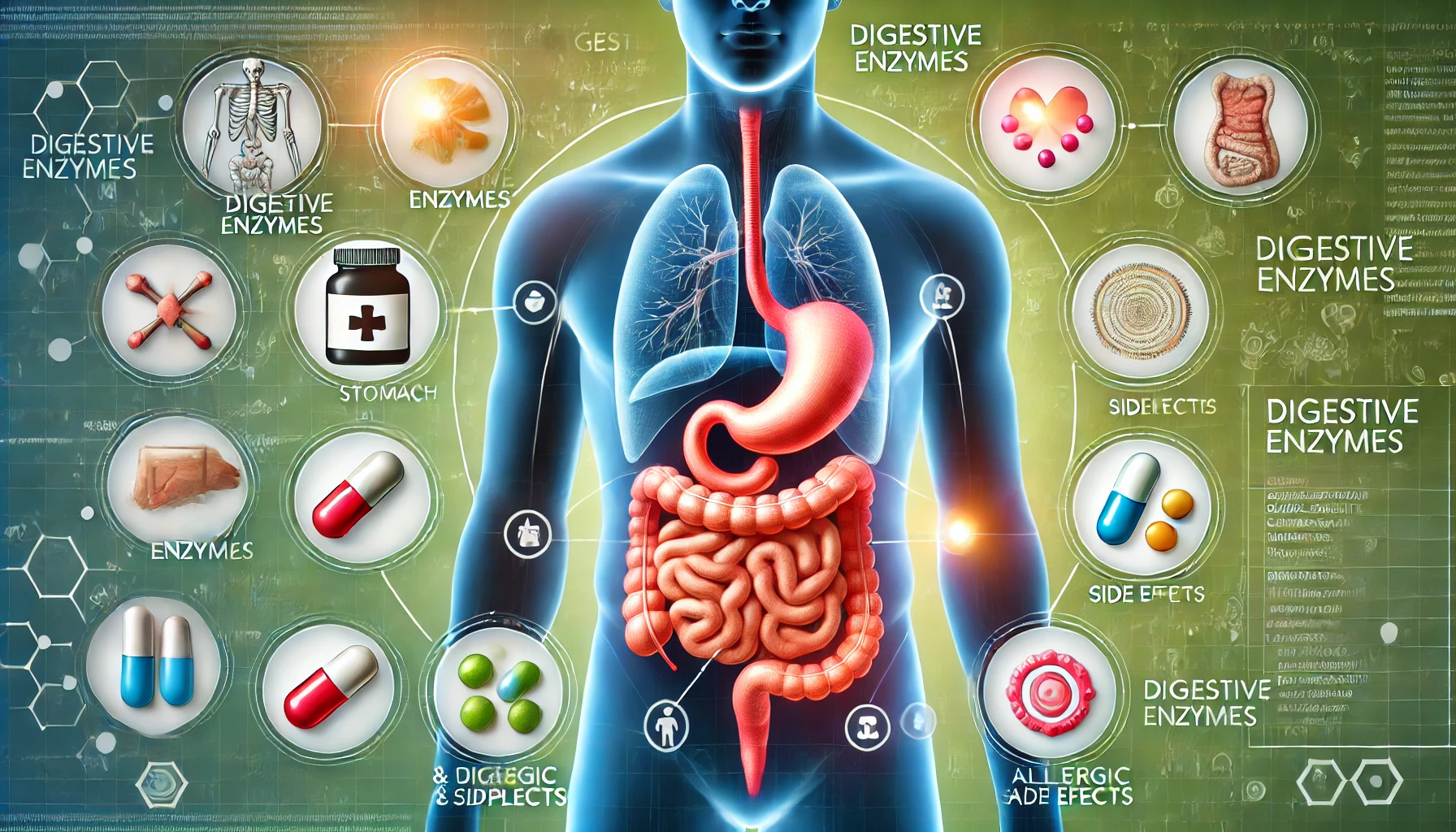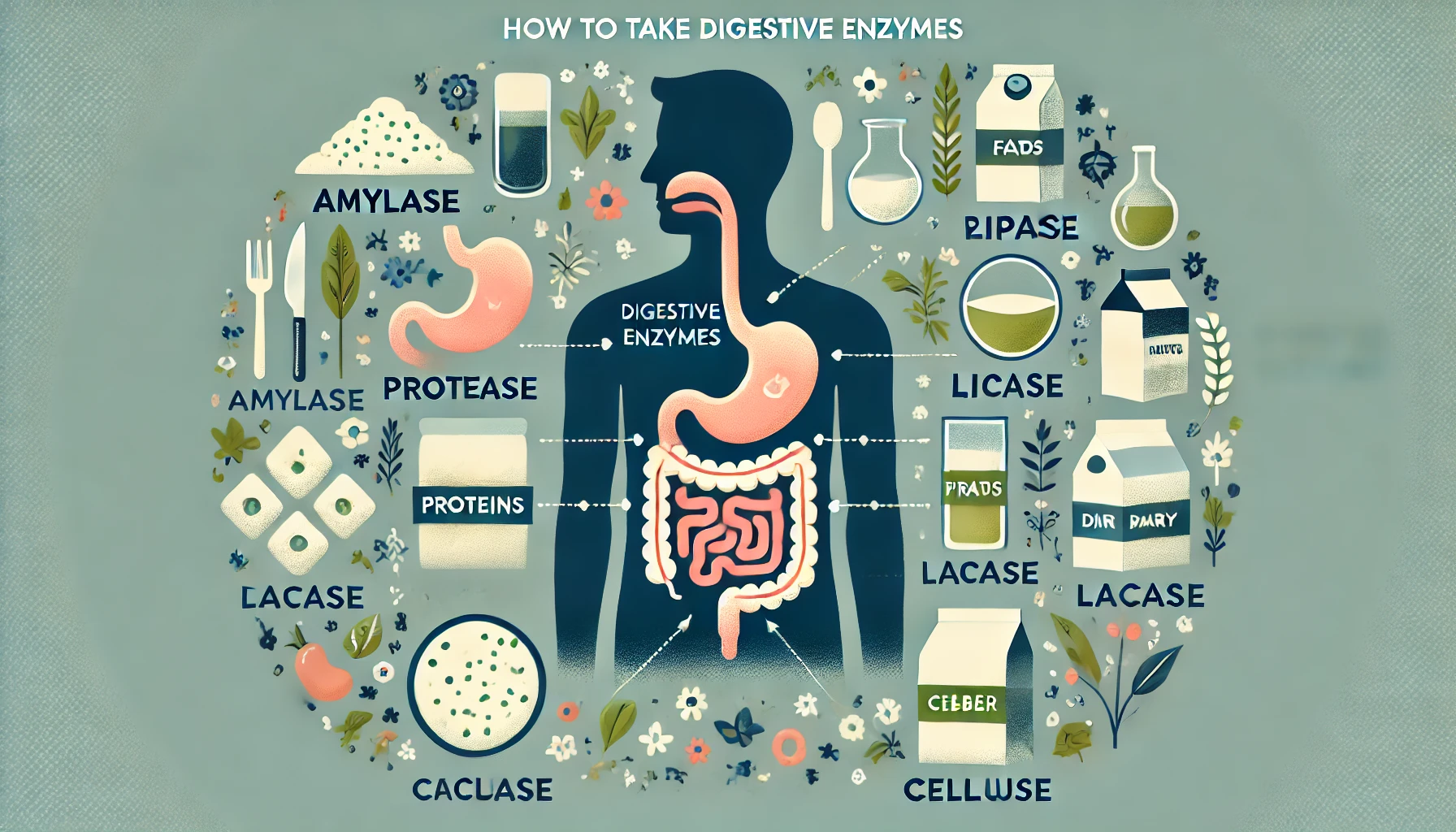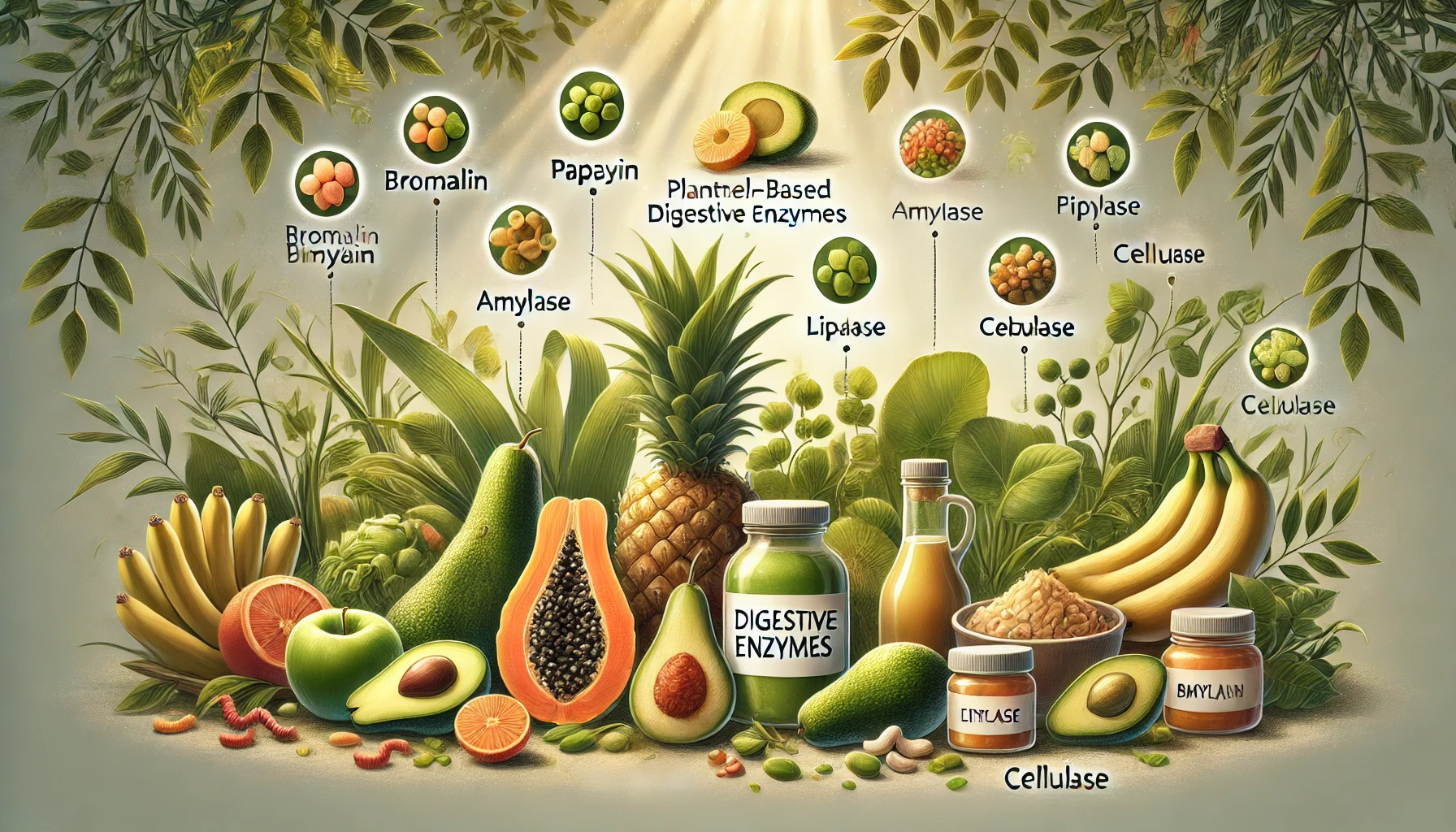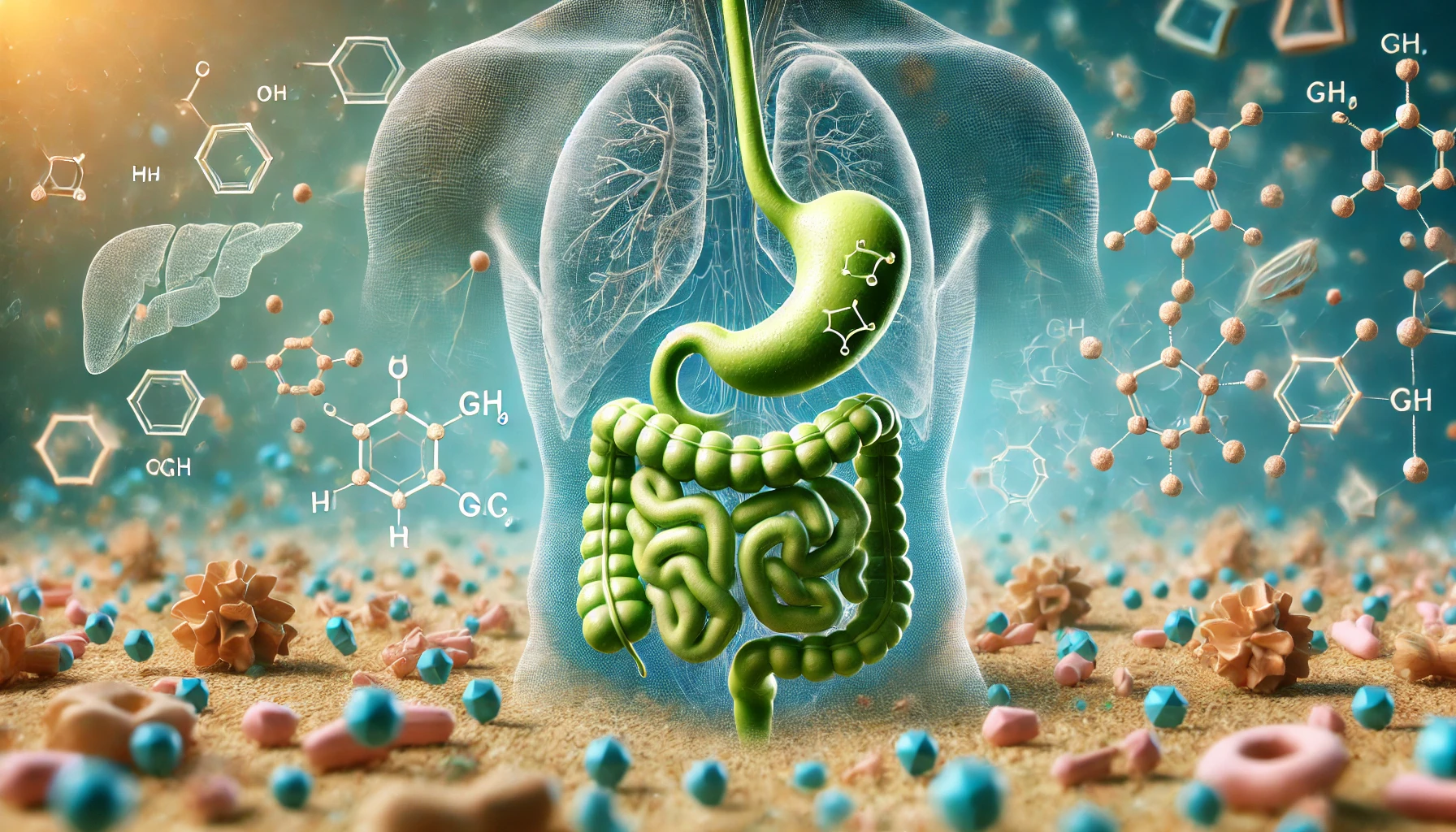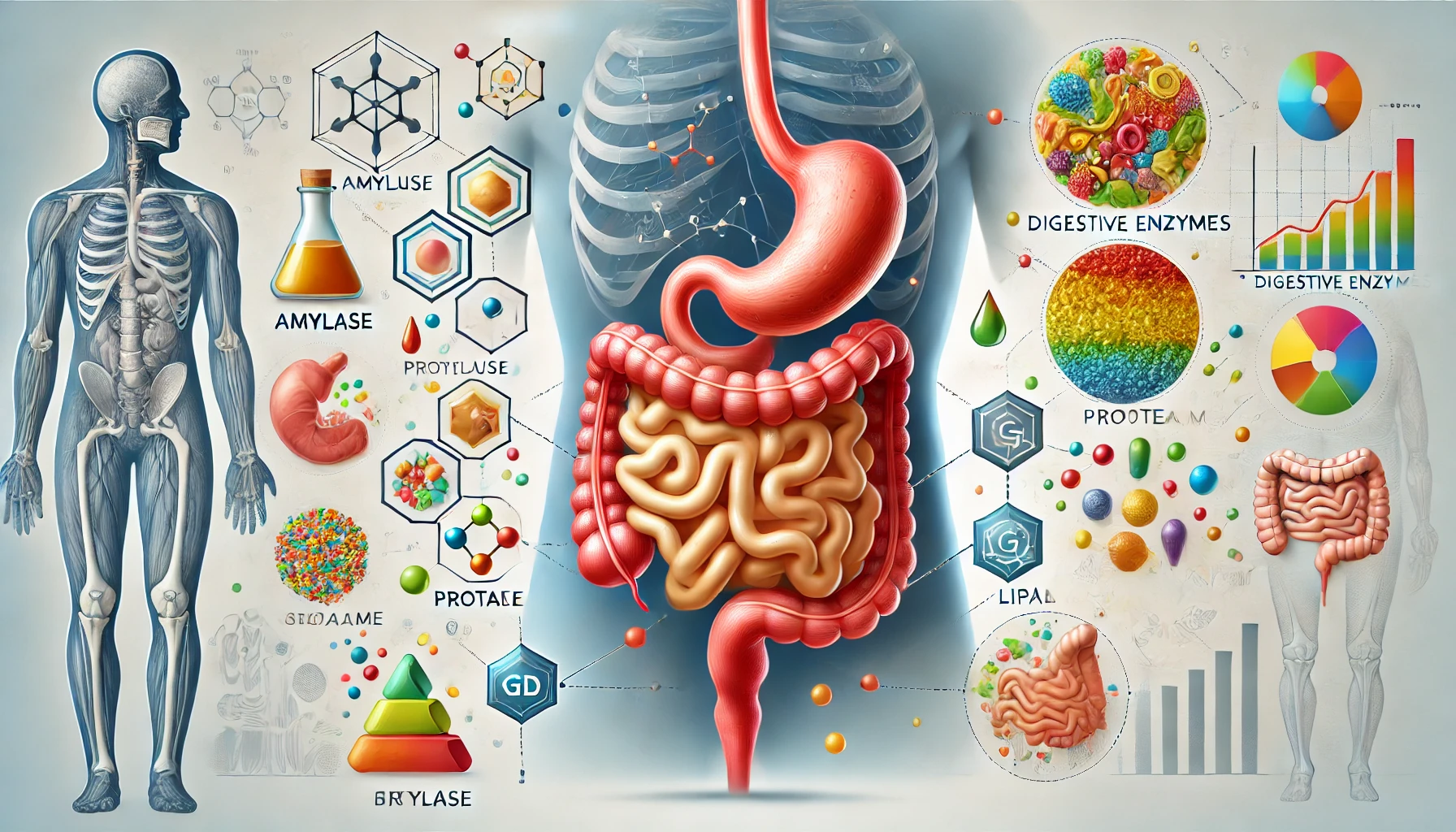Acid reflux, also known as gastroesophageal reflux disease (GERD), is a condition that affects millions of people worldwide. While lifestyle changes and medications are commonly recommended, digestive enzymes have emerged as a potential aid for those suffering from acid reflux. This article will explore how digestive enzymes can help with acid reflux, their benefits, and what you should consider when incorporating them into your routine.
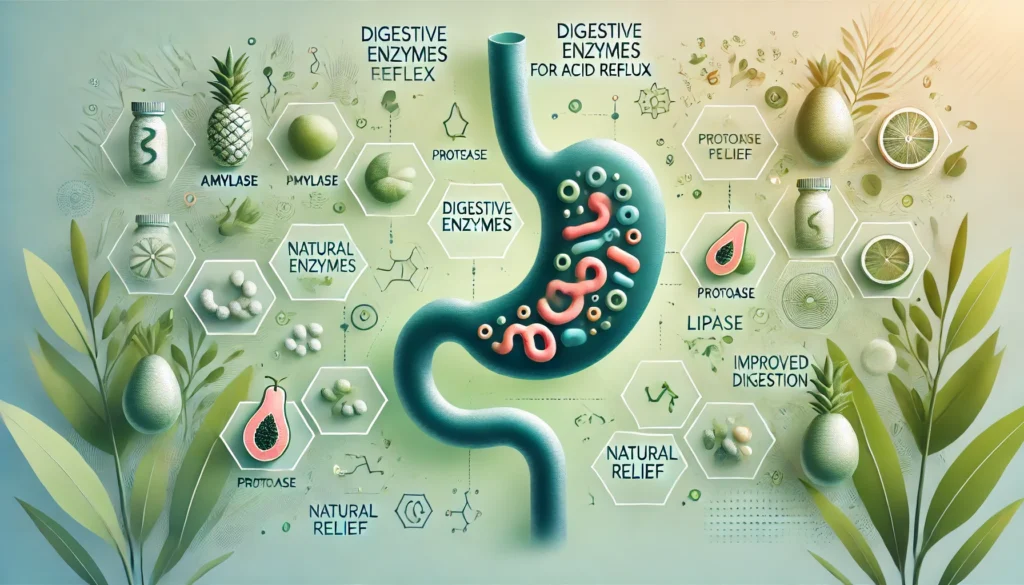
What Is Acid Reflux and How Does It Occur?
Acid reflux occurs when stomach acid flows back into the esophagus, causing discomfort, heartburn, and a sour taste in the mouth. The lower esophageal sphincter (LES), a ring of muscle that acts as a valve between the esophagus and the stomach, usually prevents this backflow. However, when the LES is weakened or relaxed inappropriately, acid can escape into the esophagus.
Summary: “Acid reflux is caused by the backflow of stomach acid into the esophagus due to a weakened or relaxed lower esophageal sphincter (LES).”
How Digestive Enzymes Can Help Acid Reflux
Digestive enzymes are proteins that break down food into smaller, absorbable components. They are produced naturally by the body, but sometimes supplementation is needed, especially if your digestive system is not functioning optimally. For acid reflux sufferers, digestive enzymes can help by:
- Reducing Gastric Pressure: Proper digestion reduces the volume of undigested food in the stomach, which in turn decreases the pressure that can force stomach acid into the esophagus.
- Improving Digestion Efficiency: Enzymes like amylase, protease, and lipase break down carbohydrates, proteins, and fats, making digestion easier and reducing the likelihood of acid reflux.
- Balancing Stomach Acid: Some digestive enzyme supplements contain betaine HCl, which can help balance stomach acid levels, ensuring that the LES functions correctly.
Summary: “Digestive enzymes help reduce gastric pressure, improve digestion efficiency, and balance stomach acid, potentially alleviating acid reflux symptoms.”
Types of Digestive Enzymes for Acid Reflux
There are several types of digestive enzymes, each targeting specific nutrients:
- Protease: Breaks down proteins into amino acids.
- Amylase: Converts carbohydrates into simple sugars.
- Lipase: Aids in the digestion of fats.
- Lactase: Helps in digesting lactose, a sugar found in dairy products.
- Betaine HCl: Often included in digestive enzyme supplements to support stomach acid production.
When choosing a digestive enzyme supplement, it’s essential to consider your specific digestive needs and consult with a healthcare provider to ensure the right balance of enzymes.
Summary: “Different types of digestive enzymes target specific nutrients, and choosing the right supplement can address the root causes of acid reflux.”
How to Use Digestive Enzymes for Acid Reflux
For optimal results, digestive enzymes should be taken with meals, as they work in conjunction with your body’s natural enzyme production during digestion. It’s also important to:
- Start with a Low Dose: Begin with the lowest recommended dose and gradually increase if needed.
- Monitor Your Symptoms: Keep track of your acid reflux symptoms to determine if the enzymes are helping.
- Consult a Healthcare Provider: Before starting any new supplement, especially if you have existing health conditions or are taking other medications.
Summary: “Digestive enzymes should be taken with meals, starting with a low dose, and monitoring symptoms to ensure they are effective in managing acid reflux.”
Potential Side Effects and Precautions
While digestive enzymes are generally considered safe, some people may experience side effects such as:
- Gastrointestinal Discomfort: Including nausea, diarrhea, or abdominal pain.
- Allergic Reactions: Rare but possible, especially if the enzymes are derived from animal sources.
- Interaction with Medications: Enzymes like bromelain can interact with blood thinners and other medications (NCCIH).
It’s essential to consult with a healthcare provider before starting digestive enzymes, especially if you have a pre-existing condition or are taking other medications.
Summary: “While generally safe, digestive enzymes can cause side effects in some individuals, and consulting with a healthcare provider is recommended.”
FAQs
Can digestive enzymes cure acid reflux?
Digestive enzymes can help manage symptoms, but they are not a cure for acid reflux. They should be used as part of a comprehensive treatment plan.
Are there any natural sources of digestive enzymes?
Yes, foods like pineapple, papaya, and fermented products contain natural digestive enzymes that can support digestion (NCCIH).
How long does it take to see results with digestive enzymes?
Results can vary, but some people may notice an improvement in their symptoms within a few days to weeks of consistent use.
Can I take digestive enzymes with other acid reflux medications?
It’s important to consult with your healthcare provider before combining digestive enzymes with other medications to avoid potential interactions.
The Final Note
Digestive enzymes offer a promising avenue for those suffering from acid reflux, helping to improve digestion and reduce symptoms. However, they are not a standalone solution and should be used in conjunction with other lifestyle and dietary changes. Always consult with a healthcare provider to ensure that digestive enzymes are appropriate for your specific situation.
For those considering supplementation, you can find a list of recommended options on our page about the best Digestive Enzyme Supplements.
